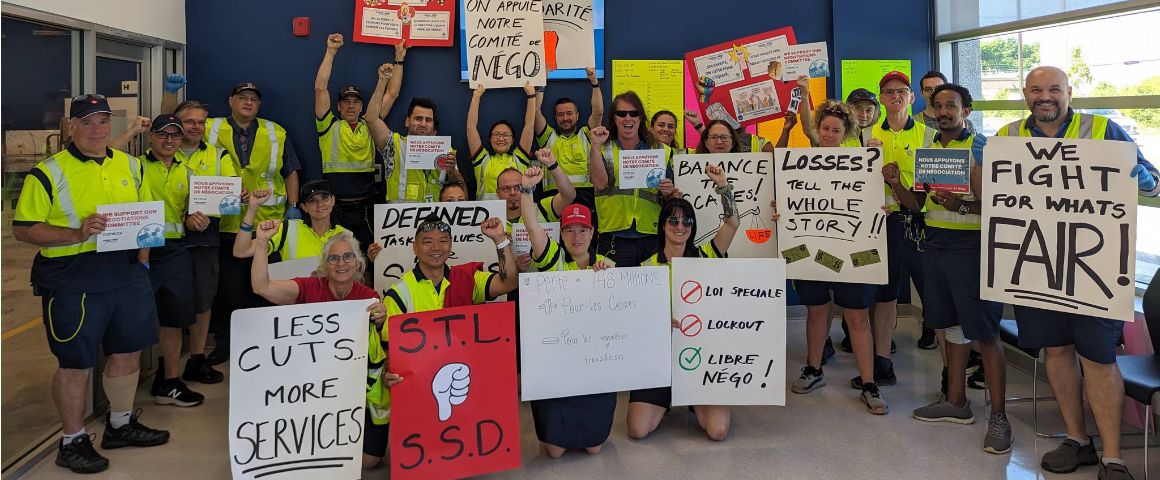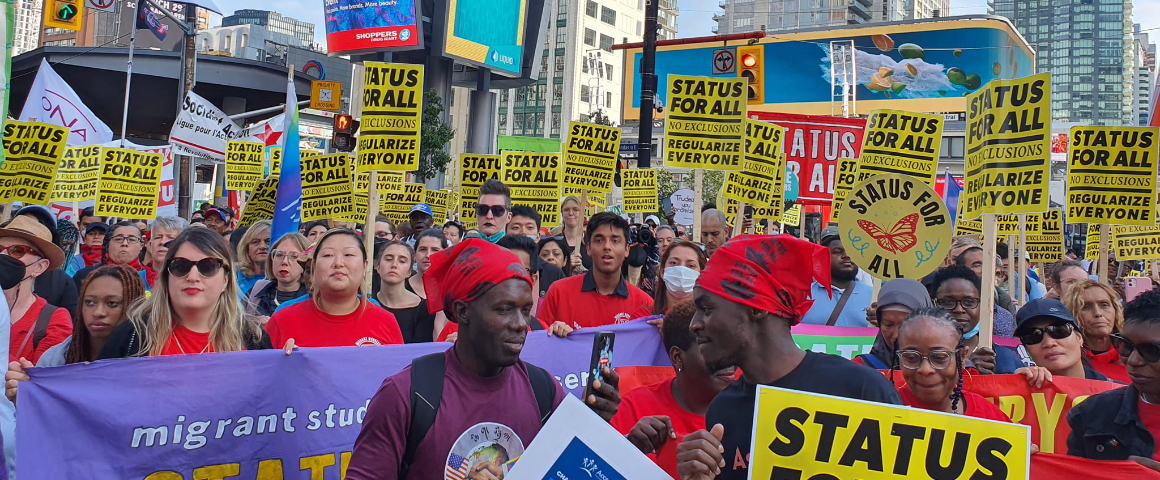Working class Manitobans are in for the fight of their lives, against 4 more years of neoliberal austerity from Brian Pallister’s Conservatives.
Fresh from winning a majority in the provincial election, Pallister announced on September 18 his “100-Day Action Plan” and issued a list of one hundred priorities for his cabinet ministers. It’s a sweeping plan, aimed directly at increasing corporate access, influence and profit in virtually every sector of Manitoba life.
In agriculture, the government will open the Crown Lands grazing lease system to an auction process instead of the current points system. It’s a move that producers fear will greatly benefit agribusiness corporations at the expense of smaller farmers, and which will make it particularly difficult for young farmers. The Tories will also attack “regulatory barriers that restrict the ability of farmers to produce for local markets,” code for removing restrictions on pesticides, weakening legislation that protects the environment, and removing nearly $1 billion in public education funds from farm property tax.
Public service workers will continue to be a target for downsizing, contracting out, and extra workloads, as Pallister seeks to accelerate and widen his civil service transformation strategy. The Manitoba Government and General Employees Union (MGEU) has opposed this strategy since it was first announced last year, on the basis that it is a plan for underfunding, privatization, and cuts to services and jobs. Public entities like Manitoba Public Insurance, Manitoba Hydro and the province’s school boards will face increased privatization, either directly through full or partial, or indirectly through deeper use of private-sector corporate management.
The government plans major changes to education funding – in addition to phasing out nearly $1 billion in public school revenue from farm property taxes, the Tories will reintroduce legislation that redefines private schools as “independent” schools, opening the door to public funding of private and for-profit schools. Funding to post-secondary institutions will be linked to “student outcomes and financial accountability,” a scheme that has been used elsewhere to diminish liberal arts programs, increase precarious employment in academic work, and expand corporate influence in post-secondary education.
The same approach will apply in healthcare, where Shared Health will have an expanded mandate to implement funding cuts through centralized procurement and administration under its “Super Agency” structure. An April 2019 report from the Canadian Centre for Policy Alternatives, called “The Valley of Despair in Manitoba Health Care,” states that the results of Shared Health’s overhaul will be erosion and worsening of health services across the province.
The 100-Day Action Plan also weakens health and safety legislation by eliminating the position of Chief Prevention Officer and giving the Minister power to dismiss “frivolous or vexatious” appeals of health and safety decisions. The government will also create a separate support program for disabled people, removing with from Employment Income Assistance (EIA) and reducing the range and amount of available assistance.
The Tories will steamroll ahead with privatization of public land and property, by creating “an inventory of [public] land and property no longer usable or required by government” and by introducing a Crown Lands Disposition Act. They have also specifically committed to privatizing infrastructure and municipal services in Winnipeg and Brandon.
In response to the climate crisis, Pallister vows to continue with the Made in Manitoba Climate and Green Plan, which has been roundly condemned as a non-response to the issue. Manitoba writer Mark Hudson has called the plan “utterly devoid of significance or effect,” and said it “represents an epic, even catastrophic failure of leadership. If we are in a fight with climate change, we’re sending a kindergartener out against a title fighter, and should only expect a beating.”
While the 100-Day Action Plan is sweeping, it’s not at all unexpected. Pallister’s first term was spent slashing social programs and public services, including cancelling close to $1 billion in healthcare infrastructure and closing hospital emergency rooms. They also introduced a two-year wage freeze for public sector workers, capped child care funding, and increased public school class sizes. During the election campaign, the Tories were clear that they intended to continue a hard-core austerity and privatization agenda. None of that is in question.
What is in question, though, is whether Pallister’s onslaught will be met with a coordinated, escalating fightback.
There are signs that this could happen, as there are already several struggles that a broader fightback could build upon. Prior to the provincial election, the Manitoba Nurses Union (MNU) mobilized continually to oppose funding cuts and ER closures, including organizing a large “Put Patients First!” rally at the Legislature on May 1. In 2017, the MNU joined with the MGEU, Public Service Alliance of Canada (PSAC), Union of Canadian Transportation Employees (UCTE), and other public sector unions in opposing Pallister’s wage freeze legislation. During the election campaign, the Amalgamated Transit Union (ATU) organized a large rally at Winnipeg City Hall to oppose austerity policies and demand adequate funding for public transit in the city.
To develop a fight on the foundation of these and other examples of labour and progressive resistance, the trade union movement will need to move into high gear. As is the case elsewhere in English-speaking Canada, the bulk of the Manitoba labour movement spent most of the provincial election stumping for the NDP; now that a federal election has been called, they have simply shifted their focus from provincial to federal social democrats.
Elections are important, but they don’t define the parameters of class struggle. The trade union movement needs to always project and organize around its own political program, based on working class demands. During elections, this provides a benchmark for candidates and parties seeking labour endorsements and support. More importantly, beyond elections, it provides a concrete framework for labour’s political work, helping lay the foundation for the ongoing struggles of the working class in (and against) capitalist society.
This understanding is steadily taking hold. Communist Party candidate and Winnipeg organizer Andy Taylor noted the positive response to the Communist provincial campaign. “We focused our efforts in five core Winnipeg ridings, and the results were outstanding when you consider our size. We won new young applicants to the Communist Party, and our platform forced left-leaning NDPers to adopt a more progressive agenda. It’s a sign of people’s increasing demand for fundamental change, and their willingness to organize around that demand. Winnipeg Communists were in the forefront of that push for economic democracy throughout the provincial campaign, and we’re continuing it now.”
With a re-elected Pallister majority, Manitoba labour has little option but to respond with a similar militant spirit.




